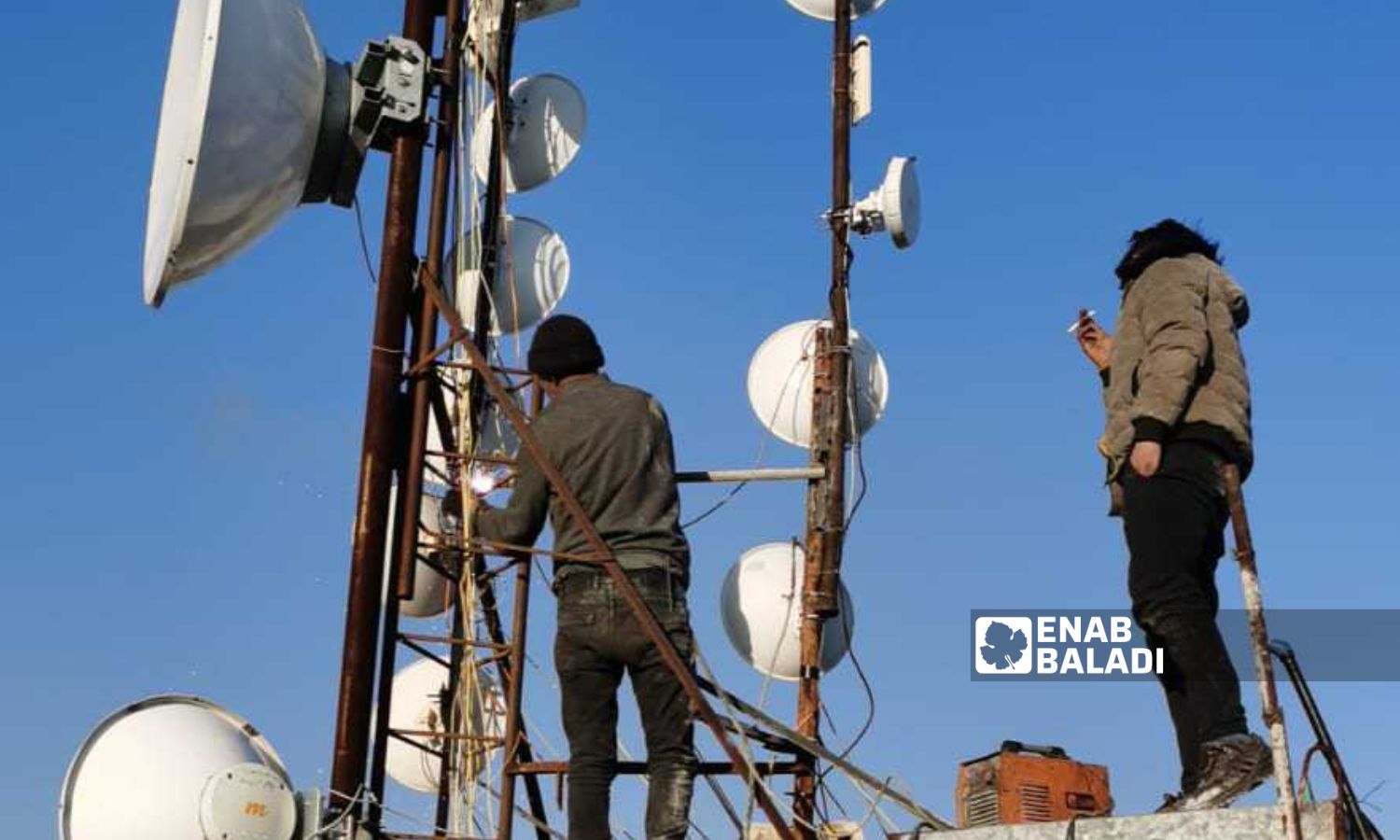



Areas controlled by the opposition in the northern countryside of Aleppo, Tal Abyad, and Ras al-Ain in the countryside of Raqqa and al-Hasakah, have been experiencing outages in some internet networks and severe weakness in others for the fourth day.
The internet outages began after protests in several cities in northern Syria, in rejection of violations against Syrian refugees in Turkey, coinciding with hints of rapprochement between Ankara and the Syrian regime and the opening of a commercial crossing between opposition-controlled areas and regime areas under Turkish-Russian sponsorship.
Owners of internet networks told Enab Baladi‘s correspondent in Azaz that they have completed all the preparations to operate the networks, but there has been no response from the source (the Turkish side) so far.
Thursday, July 4th, the Azaz Media Office mentioned that the internet networks are still down, except for the “Turkcell”, “Telecom”, and “Elux” networks, which work intermittently.
Overlapping sources in the Ras al-Ain area, northwest of al-Hasakah, and Tal Abyad, north of Raqqa, informed Enab Baladi that due to the weak and interrupted communications network, civilians were forced to approach the contact points with areas controlled by the Syrian Democratic Forces (SDF) to use the Syrian communication networks.
Cities in the countryside of Aleppo have been calm, but public institutions in Azaz are still not providing most of their services, except for essential services like bread, sanitation, electricity, and health, according to the Azaz Media Office.
Turkish post and shipping centers “PTT” have remained closed due to the return of all Turkish staff working in the area to Turkey.
The PTT branches offer simple banking services, including the disbursement of salaries to employees. Employees from various sectors such as education, police, local administration, and health, receive banking cards to withdraw their salaries and open personal bank accounts.
Citizens can deposit money into these accounts or withdraw deposited amounts at any time, whether in Turkish lira or dollars.
The protests and the departure of Turkish employees have also affected the operation of the crossings connecting opposition-controlled areas in Syria to Turkey.
The Bab al-Hawa border crossing connecting Idlib and Turkey announced its return to operation on Wednesday, with the normal resumption of passenger and truck movement.
Meanwhile, the Bab al-Salama crossing connecting Azaz and Turkey only allows the departure of Syrians, those who have been naturalized, and Turks. On the other hand, the Jarablus crossing permitted the passage of those whose permits had expired last Tuesday.
Sources at the Tel Abyad crossing, north of Raqqa, informed Enab Baladi that it continues to operate at a slow pace due to the lack of Turkish staff.
if you think the article contain wrong information or you have additional details Send Correction